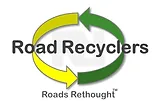Amidst a global push towards sustainability and recycling, one material stands out for its historical and ongoing recyclability – asphalt. Used primarily for paving roads, asphalt is heralded as one of the world’s most recycled materials, offering a noteworthy example of circular economy in action.
According to a report by EHS Today, asphalt tops the list of the most recycled materials, with recycling rates substantially higher than those of aluminum cans (60%), newsprint (56%), plastic soft drink bottles (37%), glass beverage bottles (31%), and magazines (23%).
Recycled Asphalt Means Cost Savings
The noteworthy recyclability of asphalt not only epitomizes sustainability but also presents significant cost savings in road construction and repairs. As per Interesting Engineering, recycling asphalt propels a significant reduction in the overall cost of road construction and repairs, thereby providing a profit or savings potential ranging from $30 to $80 per ton.

Companies such as Road Recyclers highlight their initiative towards rethinking road construction by “Designing, formulating, and supporting quality asphalt binders for the road recycling industry.” They emphasize cost-effectiveness, environmental friendliness, and rigorous quality control in their approach to recycling asphalt for road construction.
A Circular Economy for Quality Products
The National Asphalt Pavement Association emphasizes that the asphalt pavement industry has a long-standing tradition of incorporating reclaimed asphalt pavement (RAP) and other recycled materials into new asphalt mixtures. These materials include recycled tire rubber, slags, recycled asphalt shingles (RAS), glass, and even unconventional materials like pig manure. By reincorporating these materials, the asphalt industry lays a robust foundation for a circular economy, embodying a closed-loop system where waste materials are reintegrated into new products.
A noteworthy aspect of asphalt recycling is its potential for repeated recycling without degradation of quality. Yahoo News notes that asphalt pavement can be reused over and over again, although regulations often limit the recycled content of roads to around 30%. In some innovative instances, companies have even produced 100% recycled asphalt, showcasing the material’s extensive recyclability.
Moreover, the European Asphalt Pavement Association (EAPA) agrees that reusing and recycling reclaimed asphalt to build and maintain new roads has a significant positive impact. The 100% reusability and recyclability of asphalt has established it as a highly reused road construction material globally. The demonstrated success in building certain types of roads with reclaimed asphalt underscores the material’s utility and environmental benefits.
Recycling Lessons for All Sectors
The remarkable recyclability of asphalt showcases a viable model of a circular economy in the construction and infrastructure sectors. As the world veers towards more sustainable practices, the asphalt industry’s recycling endeavors serve as a commendable example for other industries to emulate. Through continuous innovation, including sequestering carbon and binder enhancing materials from Modern Asphalt, the asphalt industry contributes significantly towards environmental sustainability, echoing a global call for more circular and sustainable practices across all sectors.
Click here to learn more about Modern Asphalt and how it may help your company’s cost-out and CO2 emissions reduction objectives.
